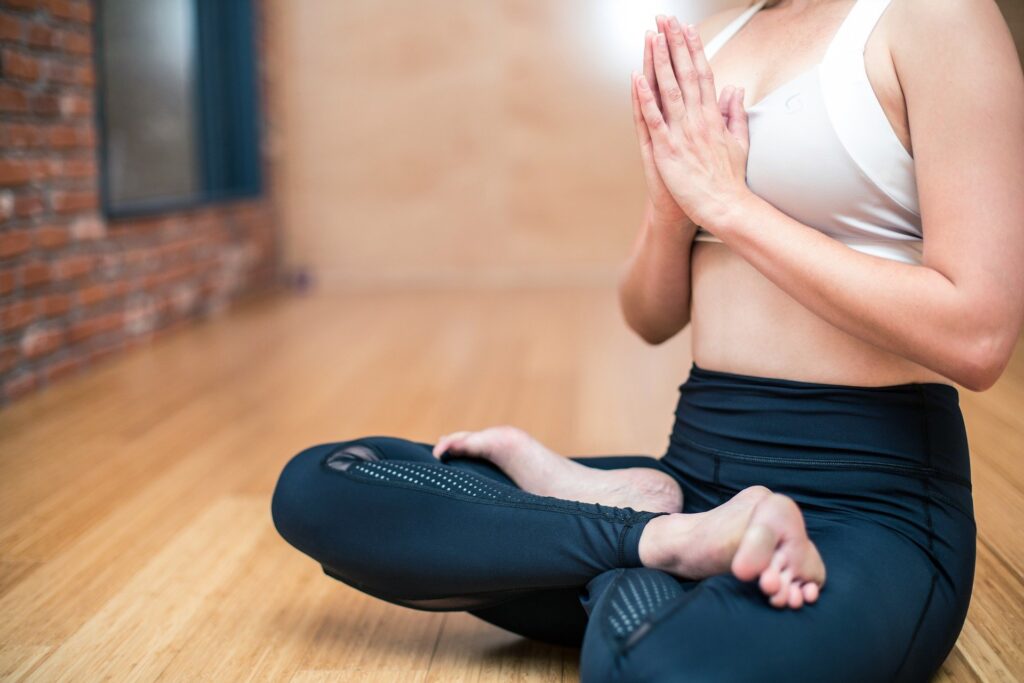How to Cope During COVID-19
February 13, 2021
By counselingwithnatalie
February 13, 2021
By counselingwithnatalie
Does anyone else remember last March when we thought quarantine would only last a few weeks? I remember thinking: Two weeks off of work? That’s great! I’ll pick up a new hobby, deep clean the house, workout every day, and focus on my mental health. This will be great! Flash forward to today, almost a year later, and that enthusiasm seems to have depleted. The excitement of staying home has turned into a yearning from human interaction. The little things I took for granted before the pandemic — meeting new people, seeing old friends, even going out to eat — seem unfathomable now. If these feelings resonate with you, you’re not alone. According to a study conducted by the Centers for Disease Control and Prevention (CDC), 40% of Americans report struggling with their mental health and/or substance abuse during the pandemic. Prevalence of anxiety and depression disorders specifically have increased significantly during the pandemic. To put it plainly, the majority of people have suffered some type of emotional consequence from the coronavirus pandemic, from the cashier at your local coffee shop to the maintenance man at your apartment building.
Healthy Ways to Cope with Stress:
As we encounter various stressors through the pandemic, it is crucial to practice healthy coping strategies. In this post, we will review some common coping mechanisms that we can use to weather the storm of the pandemic.
Trust me, I know how tempting it can be to curl up on the couch and get lost in hours of scrolling — and there’s a scientific reason behind the constant reaching for your phone. According to Harvard Medical School researchers, using electronic devices activate the brain’s reward system, the same system that, when overstimulated, can be involved in addiction. Device usage isn’t just related to the brain’s biological systems; excessive screen time also disrupts deep REM sleep, which plays an essential role in storing memories. Medical researchers recommend putting away devices two to three hours before bed and using red lights for night lights, as they are less likely to disrupt your sleep cycle.
If working remotely, scientists recommend wearing blue light-blocking glasses or installing an app that filters blue/green wavelengths. The New York Magazine recently listed the best blue light-blocking glasses reviewed by users, which can be found here: https://nymag.com/strategist/article/best-blue-light-blocking-glasses.html. In addition, two commonly used apps for filtering blue light are Twilight and Blue Light Filter.
2. Meditate:
Meditation is an ancient practice that involves focusing your mind on your breath, rather than your thoughts. While this practice may seem counterproductive, mediation has been shown to have significant health benefits. As discussed by the Mayo Clinic, emotional benefits of meditation include a decline in negative emotions, enhancement of creativity, and increased self-awareness. Also, meditation has been associated with a reduction in the symptoms of anxiety, depression, insomnia, tension headaches, and more.
There’s a reason why meditation is referred to as a practice — it seemingly goes against our human nature to not think, so it can be difficult to train ourselves to focus on our breath. Fortunately, modern technology has recognized the importance of meditation; thus, there are various resources available to aid in meditation practice. Headspace, Calm, and Aura are commonly used apps that focus on meditation and breathing techniques. Also, Spotify and Apple Music have guided meditation playlists available to members.

3. Exercise:
Listen, you don’t need to come out of the pandemic with six-pack abs; however, exercise has immense health benefits that not only address physique, but also stress relief. Remember the benefits of meditation we discussed earlier? Well, exercise is essentially meditation in motion — it alleviates daily tensions by focusing on your breath rather than thoughts. Thus, exercise can reduce the negative effects of stress and give you a sense of clarity over your emotions. In addition, exercise is associated with the release of endorphins, your brain’s feel-good chemical. These endorphins can help to improve your mood and combat feelings of anxiety/depression.
If you hate the idea of doing cardio, don’t worry. You can exercise however you want — whether that be through yoga, dancing, or taking a walk around the block. There are a ton of resources available to help get you up and moving — all you need is 30 minutes, some space to move, and your favorite playlist. Some common home/apartment friendly apps for exercise include Nike Training Club, ClassPass, CorePower Yoga on Demand, and MyFitnessPal.
4. Limit alcohol and tobacco consumption:
Some enjoy pouring a glass of wine at the end of a long day — but if that glass starts to become more of a habit than a treat, it may be time to rethink why you’re having that glass of wine in the first place. Are you using it to cope with the stress of the pandemic? Do you find yourself looking forward to consuming alcohol/tobacco more than you normally would? If so, it may be time to put away the wine glasses. Instead, let’s reach for a journal and write down what’s on our mind, or let’s grab that book we’ve been wanting to finish. Maybe we even take out a sketchpad and scribble away our stress. Whatever your preference, let’s stay mindful of our alcohol/tobacco consumption and allow ourselves to change our habits into something more productive.
Recently, there’s been a lot of hype about a prompt-filled journal that many describe as therapeutic. You can find the book, Burn After Writing, here: https://www.barnesandnoble.com/w/burn-after-writing-sharon-jones/1120625348.
If you’re in need of book recommendations, many rave about the selections made by Oprah Winfrey in her article, Oprah’s Book Club, which can be found here: https://www.oprah.com/book/oprahs-book-club-caste?editors_pick_id=26790.
If you prefer to decompress with crayons and markers, here’s a list of the best adult coloring books, complied by the New York Magazine: https://nymag.com/strategist/article/best-adult-coloring-books.html.
5. Set realistic expectations for yourself:
Remember that beginning of pandemic mindset? The one where we thought we would develop some outrageous skill or complete all our DIY projects within two weeks? Let’s be realistic. Expectations are good to have, but let’s keep our mental health in mind when making them.
Ask yourself:
There are some key ideas to consider when setting realistic goals/expectations for yourself. First, maintain a positive purpose when setting goals (i.e. Is this goal going to help me grow? Am I excited to accomplish this goal?). Next, set SMART goals, or specific, measurable, attainable, realistic, and time-bound goals. Here’s an example of a SMART goal I set for myself as I study for graduate school:
“By May 2021, I will have improved my quantitative GRE score by 10 points by committing 25% less errors on the algebra and geometry sections of the practice test.”
Notice how my goal uses action words (specific), provides a way to evaluate my progress (measurable), is within my scope of skill (attainable), makes sense within my studies (realistic), and has an identified timeframe (time-bound). With this acronym in mind, write down your goals and set them into motion. Remember to celebrate any accomplishments — no matter how small. Be proud — you’re one step closer to accomplishing your goal!

6. Connecting with Others:
If there can be a silver lining to the pandemic, it’s this: As separate as we may feel right now, our shared experiences connect us with one another in a way that was not possible before the pandemic. We know the pain of our neighbor because we’ve felt it, too. Let’s use these experiences as fuel for connecting with others, whether it be in our community, our organizations, or even internationally. Apps, such as Zoom, WebEx, and Skype, have played an influential role in virtually connecting others. Programs, such as Penpalooza, an online pen pal service created during the pandemic, have provided a creative and COVID-considerate way to meet new people. Even community-based centers, like nursing homes, are using social media platforms to voice the stories of their members in isolation. Ultimately, let’s use the resources we have to stay connected with each other as we weather this storm.
Bottom line — it’s okay that you didn’t learn how to speak French or remodel your kitchen during quarantine. You’re here, you’re seeking help, and you’re doing a damn good job. So, pat yourself on the back, call that friend that you haven’t been able to see during quarantine, and turn on the next episode of your favorite series. You deserve it!
By Missy Boyanton, Content Research Intern
References:
Blue light has a dark side. (2012). Harvard Health Publishing. https://www.health.harvard.edu/staying-healthy/blue-light-has-a-dark-side
Czeisler MÉ, Lane RI, Petrosky E, et al. (2020). Mental health, substance use, and suicidal ideation during the COVID-19 pandemic — United States. MMWR Morb Mortal Wkly Rep 2020; 69: 1049–1057. DOI: http://dx.doi.org/10.15585/mmwr.mm6932a1external icon.
Exercise and stress: get moving to manage stress. (2020). Mayo Clinic. https://www.mayoclinic.org/healthy-lifestyle/stress-management/in-depth/exercise-and-stress/art-20044469
Meditation: a simple, fast way to reduce stress. (2020). Mayo Clinic. https://www.mayoclinic.org/tests-procedures/meditation/in-depth/meditation/art-20045858
Ruder, D. B. (2019). Screen time and the brain. Harvard Medical School. https://hms.harvard.edu/news/screen-time-brain
Setting realistic expectations and goals. (n.d.). Mental Health Promotion Committee: University of Texas. https://utexas.instructure.com/courses/1211434/pages/setting-realistic-expectations-and-goals
Tags